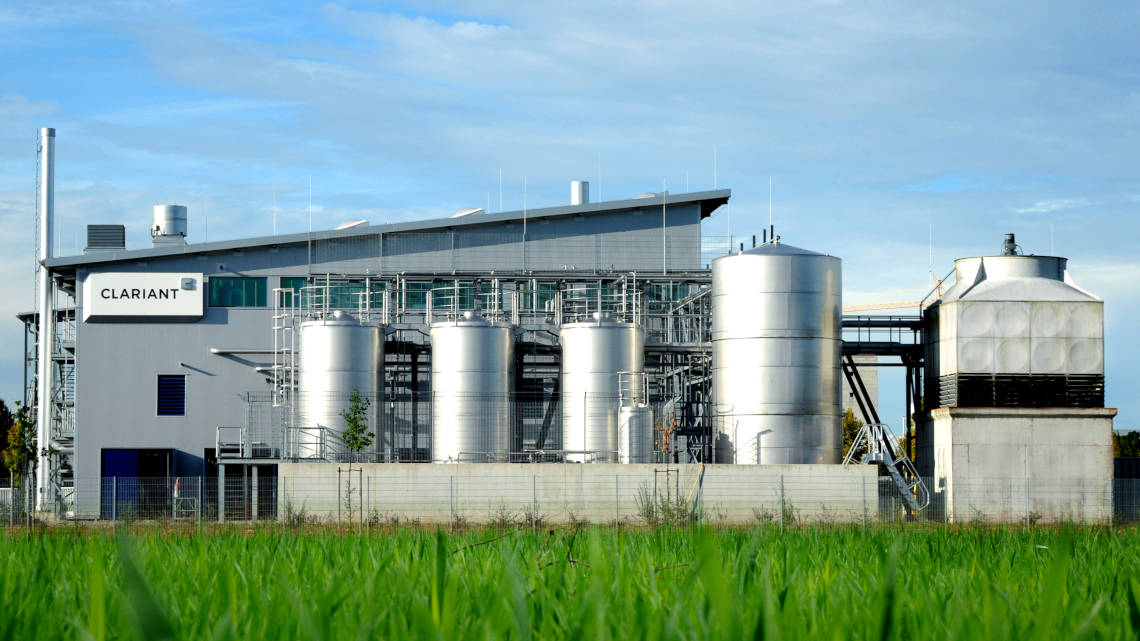Silvergrass passes biorefinery test
At Clariant's Straubing biorefinery, 30 metric tons of Miscanthus grass were successfully processed into sugars and ethanol.

It is another success for the Swiss specialty chemicals group Clariant: In the pre-commercial lignocellulose biorefinery in Straubing, Bavaria, the company has now enzymatically processed around 30 metric tons of Miscanthus grass, also known as maiden silvergrass or elephant grass, into lignocellulose sugars and ethanol. The test run was part of the EU-funded project "GRACE" (GRowing Advanced industrial Crops on marginal lands for biorEfineries).
Milestone for the biorefinery
Clariant has thus demonstrated the industrial suitability of its Sunliquid technology. Because the enzymatic process produces lignocellulose sugar as an intermediate product on the way to ethanol, it could also be used in the future as a biobased starting material for chemicals. "Once again, this showed the flexibility and efficiency of the sunliquid technology platform when it comes to different lignocellulosic feedstock," says Markus Rarbach, head of the Biofuels and Derivatives business line at Clariant. He described the tests carried out as an "important milestone for Clariant".
Miscanthus as a permanent crop
On the other hand, the company has shown that maiden silvergrass is indeed suitable as an energy plant and bio-based source of chemical feedstocks. This is particularly important because silvergrass is a fairly undemanding plant that grows even on contaminated and abandoned soils. What is attractive for farmers is that it is a permanent crop with a life expectancy of 15 to 20 years and high yields per hectare. Another ecological and economic advantage is that the plants do not have to be fertilized or treated with pesticides every year. Clariant believes that the company's technology, which is based on feedstock-specific enzymes, can now unlock the full potential of silvergrass.
Biobased value chain
"As the bioethanol demonstration case leader of the EU-funded GRACE project, we are satisfied with the testing results," sums up Stjepan Nikolić, operational head of refinery and marketing at INA. "These results are a push towards further development of a bio-based value chain and a circular bio-economy for further commercial conditions". The Croatian oil and gas company INA cultivated the Miscanthus plants in Croatia and made them available for the project.
bl/um


